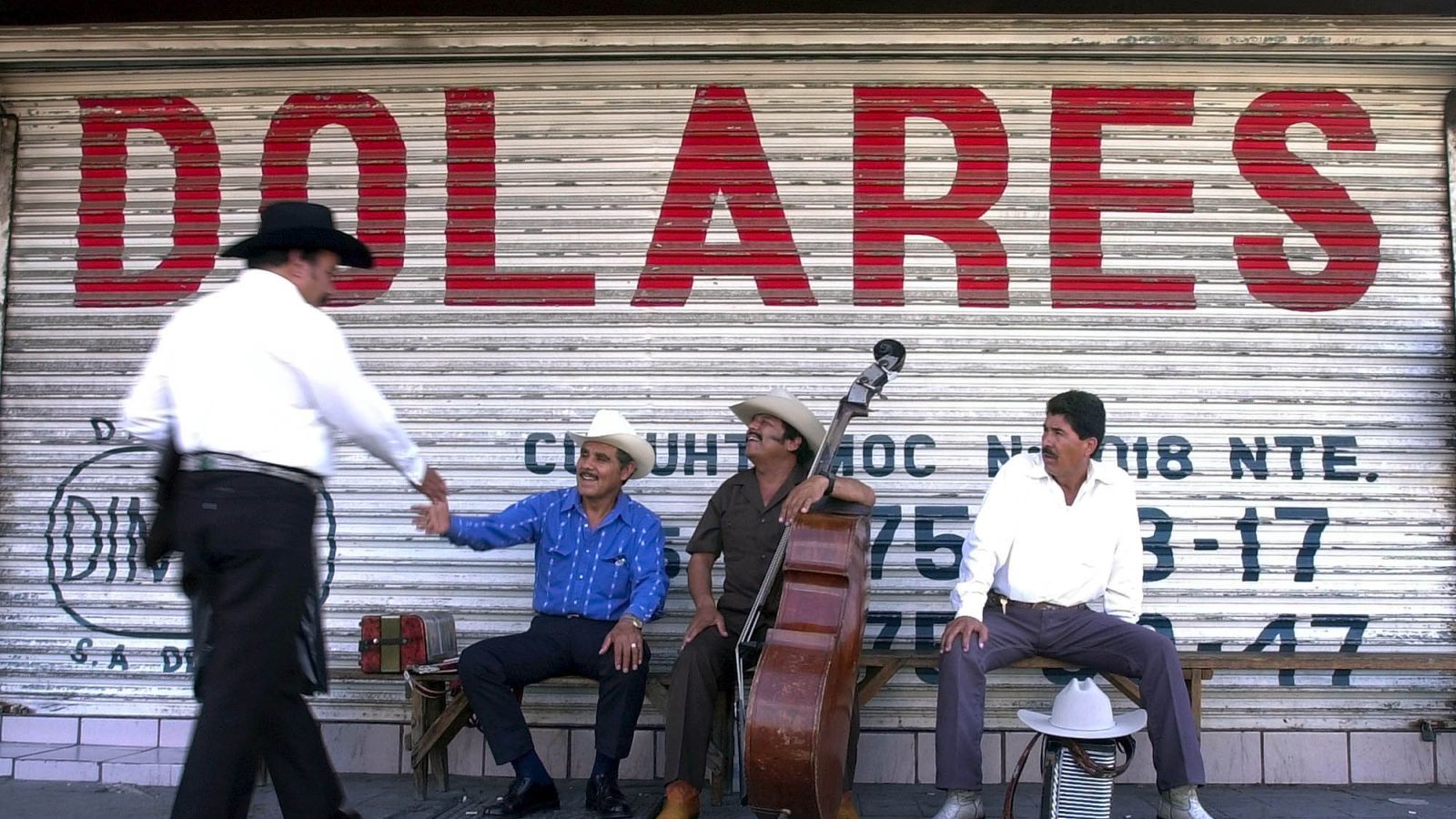Donald Trump’s malicious plan to leverage the income of undocumented immigrants to force Mexico to pay for his border wall could have devastating ripple effects across economies from Latin America to Africa.
Plus, it’s just about the lowest level of fear-mongering that his campaign has stooped to so far.
The Republican frontrunner says he wants to stop the flow of money that undocumented Mexicans in the United States send home to family members as a way of twisting the Mexican government’s arm into paying for his border wall. But in doing so, Trump would also pinch the flow of money transfers to dozens of other countries around the world where family incomes are dependent on hard-working immigrants sending remittances from the United States.
More than a dozen economies around the globe depend substantially on remittances, according to study by the Inter-American Dialogue think tank. Mexico alone received $24.7 billion in money sent home from immigrants working in the United States last year. That’s more money than Mexico generated in oil revenues, according to an AP report.
Trump’s plan, outlined in a memo sent to the Washington Post, could cut that vital artery to the Mexican economy and essentially pit undocumented Mexican immigrants—and the families who depend on them— against the Mexican government.
Trump claims he would place legal roadblocks to the southbound flow of remittances by requiring money transfer companies such as Western Union to enforce the Patriot Act’s “know your customer” provision and ensure “no alien may wire money outside of the United States, unless the alien first provides a document establishing his lawful presence in the U.S.”
But that’s easier said than done. Remittance expert Manuel Orozco, of the Inter-American Dialogue, says not only did Trump mistakenly cite the wrong regulation sections in his plan, but implementing it would require amendments to the Patriot Act and immigration law.
“Amending the Patriot Act is complicated, but more importantly what he is pointing out to refers to 103.121 of the CFR (he is mistaken in putting 130.121),” Orozco said on the candidate’s memo. “Moreover, money transfers are already covered under the act through section 326. The main problem and implication of Trump is that by modifying the CFR section, he is asking Congress to modify immigration law, too, by expecting businesses to check on a person’s lawful status, something that falls into federal jurisdiction.”
Orozco says Trump doesn’t seem to have considered the full “impact of tying cross border money transfers to legal status.”
“This could have wide repercussions beyond money transfers,” he said.
Currently more than 6 million Mexican households receive—on average—half of their total income from remittances, Orozco explained. That’s nearly 20% of all households in Mexico that depend on money sent back from family members in the United States.
In Trump’s mind, stopping that flow of money would force the government of Mexico to make a “one-time payment of $5-10 billion” for the wall.
The Trump campaign says it would exert additional pressure on the Mexican government by imposing trade tariffs, visa cancellations, and raising visa fees.
The proposal is sparking outrage from members of the Latino community who feel Trump is targeting their wallets and their families’ well being.
“As an immigrant who sends money to my family, this is totally offensive,” Leni Gonzalez, a Virginia-based immigration activist, told Fusion. “There’s a lot of symbolism behind this because it strikes immigrants at their heart, especially those who come to the U.S. with only one purpose: to help their families back home by sending them money.”
“We should have the liberty to do whatever we want with our money,” said Myriam Figueroa, an Argentine national and U.S. resident.
Although Figueroa wouldn’t be affected by Trump’s plan to show ID, she worries that such efforts to pinch remittances could eventually be expanded to cover other forms of digital commerce, including PayPal.
“Minutes before you called me, I was sending money to my mother in Colombia,” said community activist Rosalia Fajardo. “I’ve been sending money to my country for 20 years. First I was sending money for my daughter to pay for school, and now I’m sending money to pay for the nurse who takes care for my mother.”
Fajardo is a citizen but she works with many undocumented people who just like her send remittances to help their loved ones back home.
But maybe that’s part of Trump’s plan to Make America Great Again—by taking money from abuela’s hospice care to build a bigger wall.





